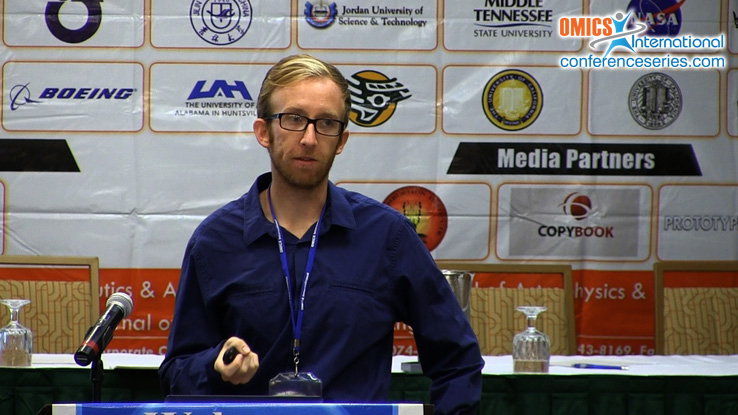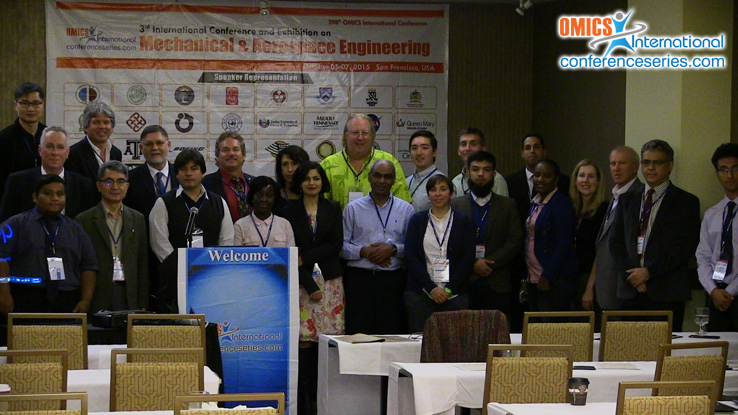
Wesley C. Young
California State University
USA
Title: Aero spike Engine-The design of a LOX/Methane multi-chamber Aero spike Engine
Biography
Biography: Wesley C. Young
Abstract
Aero spike engines were once heavily researched as they are highly desirable for single stage to orbit launch vehicles. However, development of these engine designs never progressed and implementation ceased. The scope of this project is limited to the design of a LOX/Methane multi-chamber aerospike engine with an emphasis on measurement instrumentation to further characterize engine behavior through the transonic regime. It’s believed that through increasing available data the implementation of aerospikes becomes more reasonable. The processes used to design this engine are modeled after those in ‘Development and Characterization of a 1,300 Lbf Thrust Multi-chamber Aerospike Engine’, the only known flown engine of a similar kind. This engine seeks to improve upon past designs by implementing reliable simultaneous ignition of the thrusters. Also, notably different is the use of regeneratively cooled thrusters for effective cooling and improved efficiency. The proposed subsystems of the engine designed include the 8 regeneratively cooled thrusters, 8 accompanying coaxial injectors, and ignition ports directly integrated into the thruster walls, and the central plug/engine mounting structure. Following thorough mission analysis assuming a given launch vehicle size, a 3,600 Lbf engine with an isp of 300 s was designed. Each thrust chambers was designed for 1/8 of the total engine thrust. A truncated spike was designed using Prandtl-Meyer expansion functions to estimate the slope. And injector sizing was done following techniques for reaching stable combustion. Pressure ports and thermal instrumentation are located on the plug with a cavity for devices to be located in the center.



